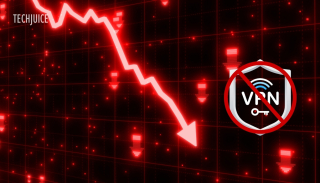Pakistan’s mobile tower industry is experiencing exponential growth in recent years. With a rapidly growing population and rising demand for telecommunication services, Pakistan’s mobile tower is facing growth.
Due to technological advancements, the industry’s reliance on grid electricity, and Diesel Generators (DGs). The growth has significantly increased energy demand and power consumption.
According to the Alternative Energy Development Board (AEDB), “the mobile tower industry has emerged as Pakistan’s largest diesel fuel consumption, using around 1.2 billion liters per year”.
It is mainly because of the grid’s severe instability, which makes it necessary to stop providing uninterrupted Telecommunication services.

As we know, the power infrastructure in the country is extremely unreliable and causes failures. Moreover, frequent outages are a common occurrence and people have become habitual of it. Though, it’s difficult and has become very challenging to totally rely on grid electricity.
With time, the country’s energy crisis is getting worse and the government is facing massive issues. Therefore, the country’s energy crisis has historically forced mobile tower companies to resort to DGs as backup power sources. Which is very essential to maintain operational efficiency but also resulted in significant carbon emissions.
Moreover, the problem necessitates viable and sustainable solutions to maintain network availability while lowering operational effectiveness and reducing the effects of climate change.
EDOTCO, a leading telecommunications infrastructure services company, is constantly trying to find out ways to reduce the dependency on DGs. Moreover, the company is planning to find out ways to incorporate alternative energy sources into its mobile tower operations in Pakistan.
On the other hand, by providing reliable battery backup during grid outages, the use of Lithium Ion Technology in the company’s high-capacity battery solution has significantly decreased diesel generator operations.
In addition, the company is trying to increase its Solarization footprint by deploying solar panels to power its Telecommunication towers.
The main aim of EDOTCO is to reduce carbon emissions, lowering operational efficiency, and ensure uninterrupted network availability for cellular subscribers nationwide.
The company is expanding its renewable energy initiatives to benefit nearby homes and mosques where technically possible, in addition, to solarizing its towers.
By doing this, EDOTCO demonstrates its commitment to advancing sustainable practices and enhancing local communities.
It is very important to reduce carbon emissions in mitigating the effects of climate change and improving the environment. Installing Solar Telecommunication towers will help in reducing the dependency on grid electricity and will also help to save a huge amount that can benefit the industry and the wider economy.
The sustainable practices will also help to save up to 21 million tons of diesel fuel annually and reduce nearly 56,000 tonnes of carbon emissions.
Additionally, Pakistan’s adherence to Paris Agreement aims to cut greenhouse gas emissions by nearly 20% by 2030.
EDOTCO has taken the initiative to incorporate renewable energy into its Telecommunication tower operations in Pakistan. Moreover, it will also help in providing job opportunities and help to develop the local renewable energy industry.
As of 2022, more than 200 mobile towers with a combined capacity of 2MW have been solarized by the company. The company is planning to increase its capacity to 5 MW by 2025.
Whereas, the company hopes to reduce carbon emissions by about 8,000 tonnes annually.
Read more:
Iran Is Launching 2 Telecommunication Satellites In Space In March












